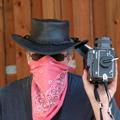ospalh (e)k Katharine Burdekin(r)en Swastika Night (S.F. MASTERWORKS) liburuaren kritika egin du
Review of 'Swastika Night (S.F. MASTERWORKS)' on 'Goodreads'
3 izar
Eh. Too many good Nazis.
There ar other reasons this is not a classic.
I think it is always giving exactly the wrong amount of details. For example, in the main part the Nazi knight goes on and on about music. Really? Music? That is what is important?. I mean, that bit also shows that Nazi writer is an unreliable narrator. What, with there not having been any English composers. Even if yu don’t count Handel, there was, say, Purcell. Or a really minor one at the end: »The lorry would not start, and on investigation was found to have a broken connection in the feed pipe. It was tiresome and difficult to manage a makeshift in the dark by the light of torches, so the corporal ordered the party to march home.«. Who cares‽ A group of Nazis marching by. Done. If the details arn’t important, than don’t give …
Eh. Too many good Nazis.
There ar other reasons this is not a classic.
I think it is always giving exactly the wrong amount of details. For example, in the main part the Nazi knight goes on and on about music. Really? Music? That is what is important?. I mean, that bit also shows that Nazi writer is an unreliable narrator. What, with there not having been any English composers. Even if yu don’t count Handel, there was, say, Purcell. Or a really minor one at the end: »The lorry would not start, and on investigation was found to have a broken connection in the feed pipe. It was tiresome and difficult to manage a makeshift in the dark by the light of torches, so the corporal ordered the party to march home.«. Who cares‽ A group of Nazis marching by. Done. If the details arn’t important, than don’t give them here.
Some points seem to be forgotten half way thru. At the beginning the Nazi knight worries about German women only giving birth to boys, not girls. In the end our Englishmen’s woman has given birth to a girl an it’s not discussed much, surely not in light of the »problem« in Germany.
And as a whole it is all talk, talk talk. At one time the author literally turns off the light so we don’t get a description of one of the few action senes. I also didn’t like how the author quickly kills off the reading Englishman and the good exiled Nazi at the end. Seemd tackt on.
My version also had quite a number of scannos (like typos, but uncorrected OCR errors). Looks like the editors got bored. The name »Hodenlohe« instead of Hohenlohe does sound funny to a German tho, in a »what ar yu, twelve?« kind of way.

